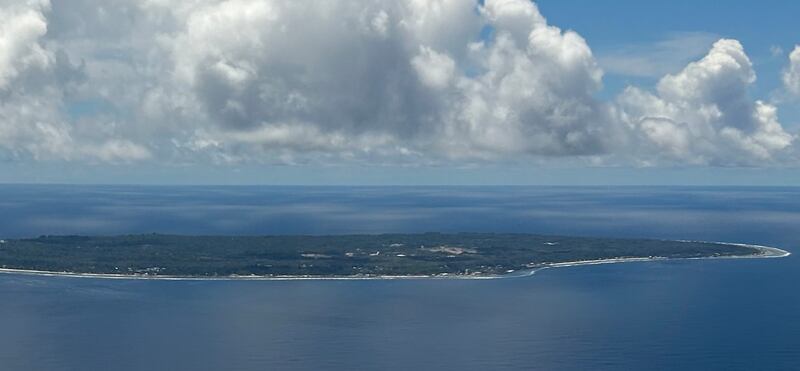Australia sent 11 asylum seekers to Nauru in September, the head of Australia’s military-run border security operation told parliament, the first transfer of people to immigration detention on the 21-square kilometer Pacific island nation in nearly a decade.
Rear Adm. Justin Jones, commander of Australia’s Operation Sovereign Borders, which the government says aims to stop migrants making risky sea voyages to Australia, told a Senate committee hearing that the 11 people were transferred to Nauru for “regional processing by the government of Nauru” on Sept. 7 after being intercepted that month.
“They were transferred from Australia across to Nauru and any further details there would disclose operationally sensitive material,” he told a Senate hearing Monday under questioning from an opposition senator, video of the hearing shows. His comments confirmed a Guardian Australia report last week that said 11 asylum seekers had been secretly transferred to Nauru.
Australia has sent people who tried to arrive on its shores by boat to Nauru and Papua New Guinea since 2001, according to the Refugee Council of Australia. It halted the practice from 2008-12. Australia’sdetention center on Manus island in Papua New Guinea eventually closed after the Pacific island country’s Supreme Court ruled in 2016 that it was unconstitutional.
The Australian detention center on Nauru once housed more than 1,200 people, but last year was empty with several dozen remaining refugees living in the Nauruan community, according to Australian government figures and the refugee council. As of August this year, only two refugees were on the island, according to the council.
Despite the facility being unused, Australia’s government has kept it open, providing a continuing windfall to Nauru. Fees and income tax on the profits of the detention center operator have for several years contributed more than half of the Nauru government’s annual revenue, its budget documents show.
In the Senate committee, Jones declined to give details about the asylum seekers including whether children or women were among them, their nationalities, which country they had left from in their attempt to get to Australia and how long they would be detained for.
Green Party Senator Nick McKim said the secrecy was “outrageous.” There was an “Alice in Wonderland” quality to the evasiveness of Jones’ answers, he said.

Offshore detention, supported by Australia’s largest political parties and the public who feared an influx of people transported by boat via Indonesia, has resulted in years-long limbo for asylum seekers and has been criticized as a form of torture by human rights groups.
The U.N. Committee on Torture, which monitors nations’ compliance with the Convention against Torture, in November said Australia should repeal provisions in its migration law that allow mandatory and indefinite detention for people, including children, who are unauthorized arrivals to the country.
Nauru, northeast of Australia, is the world’s third smallest state by area after the Vatican and Monaco. It is reliant on aid from Australia, Taiwan, organizations such as the Asian Development Bank and the income it gets from the detention center and its tuna fishery.
The Australian government awarded a 422 million Australian dollar (U.S. $270 million) contract to U.S. prisons operator, Management & Training Corporation, to provide “Facilities, Garrison, Reception Services in Nauru,” according to details published on the Australian government’s contracting site in January. The contract covers September 2022 to September 2025.
Nauru, home to about 10,000 people, is pockmarked by a phosphate mining industry that on paper made Nauru among the world’s richest nations in the second half of last century.
The phosphate is now exhausted and Nauru turned to problematic money-making schemes such as selling passports and offshore banking that earned it international notoriety in the 1990s and 2000s.
